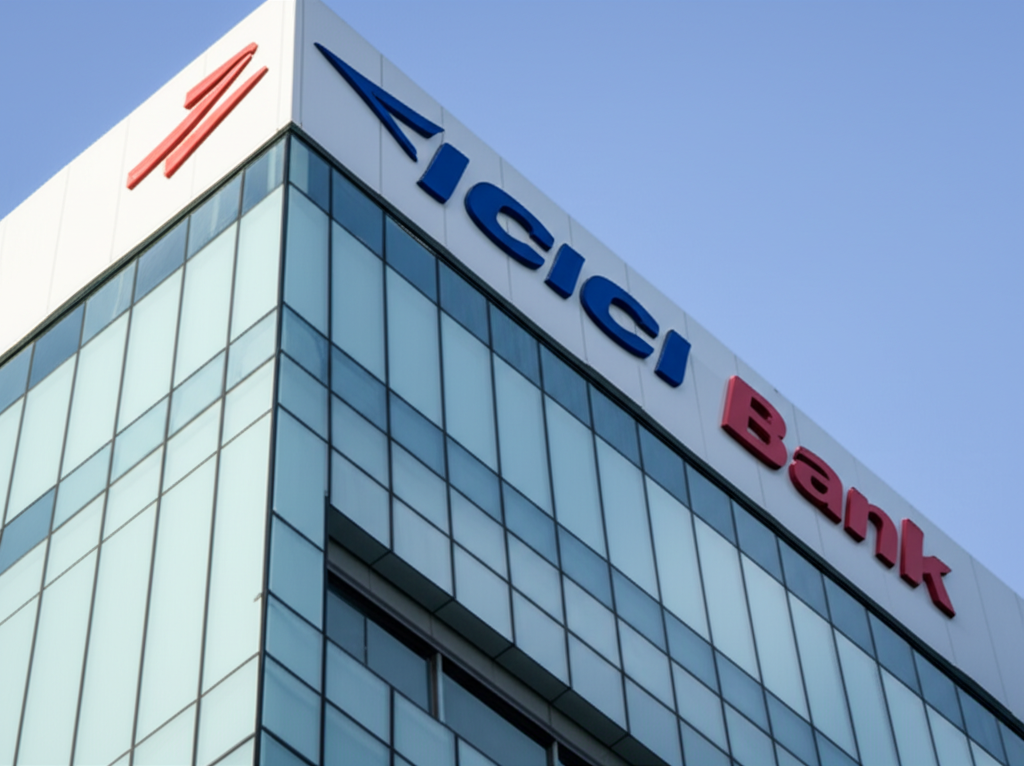In recent years, India has emerged as a burgeoning hub for technological innovation, giving rise to a dynamic and rapidly growing ecosystem of tech startups. These startups, spanning a diverse range of sectors from fintech and healthcare technology to e-commerce and artificial intelligence, are redefining the landscape of the Indian economy. Their growth trajectories are not just transforming industries but are also making a significant mark on Indian stock exchanges.
The intersection of tech startups and stock exchanges represents a critical juncture in India’s economic narrative. Stock exchanges, notably the Bombay Stock Exchange (BSE) and the National Stock Exchange (NSE), are pivotal in this scenario, serving as gateways for these burgeoning companies to access capital markets, enhance their visibility, and achieve sustainable growth.
The journey of a tech startup from its inception to a publicly listed entity on a stock exchange is laden with both opportunities and challenges. This trajectory is crucial, as it not only dictates the success of the startups but also influences investor confidence and the broader economic landscape. In this blog, we delve into the intricacies of this journey, exploring the current state of tech startups in India, their symbiotic relationship with the stock exchanges, and what the future holds for this vibrant and essential sector of the Indian economy.
Current Landscape of Tech Startups in India
The Indian tech startup ecosystem has been thriving, characterized by a vibrant mix of innovation, entrepreneurial spirit, and increasing investor interest. This section explores the current landscape of these startups, highlighting their growth, diversity, and impact on the Indian economy.
Growth and Significance
- India’s startup ecosystem is one of the fastest growing in the world. As of recent years, the country has seen a surge in the number of startups, with a significant portion in the technology sector. This growth is not just in numbers but also in valuation, with several startups achieving ‘unicorn’ status (valuation of over $1 billion).
- The sector’s growth is a testament to India’s burgeoning digital infrastructure, favourable demographics, and an increasing number of internet users.
Diversity in Sectors
- Tech startups in India span a diverse array of sectors. Fintech startups are revolutionizing how people and businesses handle finance, while health tech startups are making healthcare more accessible. E-commerce platforms continue to grow, and there’s a rising focus on sectors like EdTech, AgriTech, and CleanTech, reflecting broader socio-economic needs.
Impact on Economy and Employment
- These startups are significant contributors to the Indian economy. They’re not just bringing in investment but also generating employment, fostering innovation, and contributing to GDP growth.
- The success stories of these startups are inspiring a new generation of entrepreneurs, leading to a vibrant entrepreneurial culture.
Government Policies and Initiatives
- The Indian government has played a pivotal role in fostering this ecosystem through various initiatives like Startup India, Digital India, and Make in India. These initiatives provide support in terms of funding, policy formulation, and creating a conducive environment for startups to flourish.
- Recent policy reforms, such as easing of norms for public listing and fundraising, are further encouraging startups to consider IPOs as a viable option for growth.
In conclusion, the tech startup ecosystem in India is at a promising juncture, with a blend of rapid growth, sectoral diversity, and robust government support. This vibrant landscape is setting the stage for an intriguing interplay with the Indian stock exchanges, a crucial next step in their evolutionary journey.
Indian Stock Exchanges: An Overview
Indian stock exchanges, primarily the Bombay Stock Exchange (BSE) and the National Stock Exchange (NSE), play a pivotal role in the country’s financial landscape. They are not just platforms for trading securities but are crucial for the growth and visibility of tech startups in India.
Bombay Stock Exchange (BSE)
- Established in 1875, the BSE is Asia’s oldest stock exchange. It has a significant presence in the Indian market, offering a platform for companies to raise capital. The BSE has been instrumental in the journey of numerous tech startups transitioning into public companies.
- The BSE’s SME platform is particularly noteworthy for tech startups. It provides an avenue for smaller companies to list, facilitating easier access to capital and providing a boost to their visibility and credibility.
National Stock Exchange (NSE)
- The NSE, founded in 1992, is known for its modern, fully automated screen-based electronic trading system. It offers tech startups a robust and transparent platform to list and trade their stocks.
- The NSE’s Nifty Next 50 index is often seen as a breeding ground for future blue-chip firms, including promising tech startups that show significant growth potential.
Supporting Tech Startups
- Both BSE and NSE have initiated various measures to encourage startups to list. This includes relaxed norms for listing, reduced fees, and assistance in meeting regulatory requirements.
- These exchanges also play a crucial role in providing startups with a wider investor base, which is crucial for raising capital and ensuring long-term sustainability.
Success Stories
- Recent years have seen several tech startups successfully listing on these exchanges, with some even opening with impressive market valuations. This success has not only provided a roadmap for other startups but has also boosted investor confidence in the tech startup sector.
The Role of IPOs
- Initial Public Offerings (IPOs) are a significant milestone for tech startups. Listing on a stock exchange through an IPO brings in much-needed capital, enhances the startup’s public profile, and provides an exit route for early investors.
In summary, Indian stock exchanges are more than just trading venues; they are catalysts for growth and sustainability for tech startups. The BSE and NSE, with their startup-friendly initiatives, are vital in the journey of these companies as they transition from fledgling ventures to publicly traded entities, symbolizing their maturity and success in the competitive tech landscape.
Trends Influencing Tech Startups and Stock Exchanges
The landscape of tech startups and their interaction with stock exchanges in India is constantly evolving, influenced by a variety of trends. These trends not only shape the startup ecosystem but also have a significant impact on how these startups engage with stock markets.
Emergence of New Tech Sectors
- The Indian tech startup scene is witnessing the rise of new and innovative sectors. Artificial Intelligence (AI), Machine Learning (ML), Blockchain, and Internet of Things (IoT) are at the forefront, driving significant investment and interest.
- Fintech startups are revolutionizing the banking and financial services industry, while HealthTech and EdTech are addressing critical gaps in healthcare and education.
- This diversification is attracting a broader range of investors and opening new avenues for startups to explore public listings.
Global Economic Trends
- Global economic shifts, such as the increasing digitalization of businesses and the growing importance of sustainable and green technologies, are influencing Indian tech startups.
- These trends are not only shaping the types of startups emerging but are also affecting investor appetite and stock market dynamics. Startups that align with these global trends often find it easier to attract both domestic and international investors.
Foreign Investment
- Foreign Direct Investment (FDI) in the tech sector has played a crucial role in the growth of Indian startups. International investors are increasingly interested in India’s tech startup market due to its high growth potential and favorable demographics.
- The participation of global venture capitalists and private equity firms is providing startups with not just capital but also strategic guidance for scaling and innovation.
Government Policies and Digital Initiatives
- Government initiatives, such as the Digital India campaign, are encouraging digitization and innovation, indirectly boosting the tech startup environment.
- Policy reforms aimed at easing the process of listing on stock exchanges and attracting foreign investment are also significant. These reforms make it more feasible for startups to consider IPOs as a growth strategy.
Rising Startup Valuations
- Increased investor confidence has led to higher valuations of tech startups. This trend is encouraging more startups to consider IPOs as a viable option, leading to increased activity on stock exchanges.
Challenges of Pandemic and Economic Fluctuations
- The COVID-19 pandemic and subsequent economic fluctuations have had a dual impact. While they posed challenges in terms of operations and funding, they also accelerated the adoption of digital technologies and services, benefiting many tech startups.
In conclusion, these trends highlight the dynamic nature of the tech startup ecosystem and its interplay with stock exchanges in India. The evolving global economic landscape, increasing foreign investment, government policies, and rising startup valuations are collectively shaping the future of tech startups in Indian stock exchanges, presenting both opportunities and challenges.
Challenges Faced by Tech Startups in Stock Markets
While the journey of tech startups in India towards stock market listings is filled with opportunities, it also comes with a unique set of challenges. These challenges can impact their success on stock exchanges and their overall growth trajectories.
Regulatory Hurdles and Compliance Issues
- Navigating the complex web of regulations and compliance requirements is a significant challenge for startups aiming for an IPO. The process of meeting the stringent criteria set by stock exchanges and regulatory bodies like the Securities and Exchange Board of India (SEBI) can be daunting, especially for young companies.
- Maintaining transparency and adhering to financial reporting standards is another area where startups often struggle, as they transition from private to public companies.
Market Volatility and Investor Sentiment
- Stock markets are inherently volatile, and this can pose a significant risk for startups. Fluctuations in the market can affect the valuation and performance of a startup’s stock post-IPO.
- Investor sentiment, which can be influenced by a range of factors from global economic trends to company performance, plays a crucial role in the success of a startup’s stock. Negative sentiment can lead to underperformance, affecting the company’s ability to raise capital and grow.
Challenge of Maintaining Growth Post-IPO
- Once a company goes public, there is immense pressure to maintain consistent growth and meet investor expectations. This can be challenging for tech startups that are used to operating in a more flexible and fast-paced environment.
- Balancing the need for innovation and risk-taking, which are hallmarks of startups, with the demands of being a publicly traded company, which requires stability and consistent growth, can be a difficult task.
Scaling and Operational Challenges
- As startups grow and prepare for an IPO, scaling their operations effectively becomes crucial. This often requires significant investment in technology, talent, and infrastructure, which can be a hurdle for many startups.
- Ensuring that the company’s culture and vision are maintained while undergoing rapid growth and increased scrutiny is another challenge.
In summary, while the prospect of listing on a stock exchange is attractive for tech startups in India, it comes with its own set of challenges. Regulatory hurdles, market volatility, the pressure to maintain growth post-IPO, and scaling challenges are all critical factors that startups need to navigate to ensure a successful transition from a private to a public company.
Future Outlook
The future of tech startups in Indian stock exchanges appears promising, yet it is poised on the cusp of various transformative trends and challenges. This section explores the potential developments and their implications for tech startups and stock exchanges.
Predictions for Tech Startup Growth and Stock Market Trends
- The Indian tech startup ecosystem is expected to continue its growth trajectory, buoyed by a robust digital infrastructure, a burgeoning middle class, and a growing pool of tech-savvy entrepreneurs. This growth is likely to be mirrored in their presence on stock exchanges, with more startups eyeing IPOs.
- Trends such as increased digitization, a focus on sustainable technologies, and advancements in AI and ML are expected to drive innovation and attract investments. This could lead to a surge in tech IPOs in sectors like fintech, health tech, and edutech.
Government Policies and Global Economic Changes
- The Indian government’s ongoing initiatives to support startups and digitization, combined with policy reforms aimed at easing IPO processes, are likely to further encourage startups to go public.
- Global economic factors, including the shifting dynamics of international trade and investment, will continue to influence the Indian stock markets and the attractiveness of Indian tech startups to foreign investors.
Evolving Nature of Technology
- The rapid evolution of technology means that startups need to continually innovate to stay ahead. This could lead to a dynamic IPO landscape, where investors are presented with opportunities in cutting-edge technologies.
- The integration of emerging technologies like blockchain and IoT across different sectors will likely spawn new types of tech startups, adding diversity to the stock market.
Challenges and Opportunities
- While the outlook is largely positive, challenges such as regulatory compliance, market volatility, and competition will persist. Startups will need to demonstrate resilience and adaptability to succeed in the public domain.
- The ongoing challenge of balancing innovation with profitability and investor expectations will continue to shape the strategies of tech startups.
In conclusion, the future of tech startups in Indian stock exchanges is poised for growth, marked by innovation, government support, and evolving technologies. While challenges remain, the potential for these startups to significantly impact the economy and stock market landscape is immense, promising an exciting future for investors, entrepreneurs, and the broader Indian economy.
Conclusion
As we conclude this exploration of the future of tech startups in Indian stock exchanges, it’s clear that this dynamic interplay is more than just a financial relationship; it’s a reflection of India’s burgeoning innovation landscape and economic aspirations.
The journey of tech startups from inception to becoming publicly traded entities on stock exchanges like BSE and NSE symbolizes a maturity and recognition that is vital for the Indian economy. These startups are not just business ventures; they are beacons of innovation, employment generators, and contributors to India’s global economic stature.
The collaboration between startups and stock exchanges has the potential to foster a robust ecosystem conducive to growth, innovation, and investor confidence. It is a relationship that benefits both entities—startups gain access to capital, market visibility, and credibility, while stock exchanges are invigorated by the fresh energy, innovation, and investment opportunities these startups bring.
Looking ahead, the future seems promising. With supportive government policies, a growing economy, and an increasingly digital world, the stage is set for a flourishing symbiosis between tech startups and stock exchanges in India. Challenges remain, but so do immense opportunities. This relationship is poised to not only redefine the landscape of Indian entrepreneurship but also to contribute significantly to the broader narrative of India’s economic growth and innovation.
In essence, the story of tech startups in Indian stock exchanges is not just about financial transactions; it’s about the spirit of Indian entrepreneurship, the promise of technology, and the boundless potential of a nation on the rise.















0 Comments